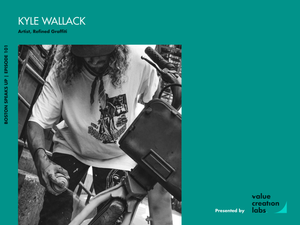The dropout rate for massive open online courses continues to be harped on. “Massive MOOC dropouts,” the public screams. Local college presidents have even chimed in, remarking that while individuals write about the “200,000 who signed up to [a] course, no one is writing about the 160,000 who aren’t finishing it.”
Coursera Co-Founder Daphne Koller would argue: “It’s not a problem at all.”
Koller participated in Northeastern’s Presidential Speaker Series on Wednesday, walking the audience through the online learning platform’s background story, stats and global benefits. It was when the conversation turned to the crowd, however, that the “downsides” of online education came to the forefront.
“The truth is, that most of the students who enroll in a MOOC have no intent to finish it at all,” Koller acknowledged. “Most students are just exploring; they’re browsing.”
Koller likened the issue to students checking materials out of the library. They take a book home, scan a few chapters and, when the loan period is over, they bring the book back only partially read.
“Is that a failure of the book?” Koller asked. “No. They never had the intent to do all the homework. ... Once you calibrate for that, our rates don’t become nearly as bad.”
Currently, the completion rate of an initial assignment is 45 percent.
Yet, as the course continues, the completion rate shifts closer to 80 percent, because the less serious students have been weeded out.
“It’s nothing close to the, ‘Oh, only five percent of people finish the course,’” Koller said. “That’s true, because only 10 percent ever intend to.”
The same questions have been asked of fellow online learning platform edX, which announced a partnership with Stanford yesterday. When edX was introduced into the conversation, however, Koller--a Stanford professor who’s also incorporated the University into Coursera--admitted she isn’t afraid of edX’s growth.
“It’s healthy to have multiple entrants into a space,” Koller said. “It would be unhealthy if there was just the one. From a much more pragmatic perspective, frankly, we’re much, much bigger on every single dimension.”
Skeptics of online learning don’t seem to faze Koller either. When asked how she responds to critics, Koller couldn’t give a definitive answer, because people are dubious about different aspects, whether it be academic integrity or learning outcomes. What she points to, however, is Coursera’s success rate, which “speaks for itself.”
“The day people are no longer skeptical, Daphne may be out of a job,” Aoun said. “She’s capitalizing on disruption. By definition, every disruption will have skeptical people.”
Koller refused to use the word “disruption,” preferring “transforming” instead. When building Coursera, Koller referred to their choice of working with schools instead of against them. If a student approached her asking whether they should attend Northeastern solely online or instead approach learning residentially, Koller admitted she would encourage they come to Northeastern.
One question does keep her up at night, though: “How do we navigate these treacherous waters of transforming the system in a way that doesn’t break it?”
“I really believe in the system,” Koller said, noting, “It’s very easy when you have a transformative technology to give people who don’t understand ammunition on things that could lead to very bad outcomes.”
Moving forward, we, as a society, need to ensure the education system stays intact as these alternative forms of learning continue to develop.
“It’s really important to try and navigate this in a way that aims toward the good outcomes that I think could emerge from this without giving people the opportunity to derail it into the really bad ones,” Koller said.
For the entire interview, check out the video by Northeastern below.








